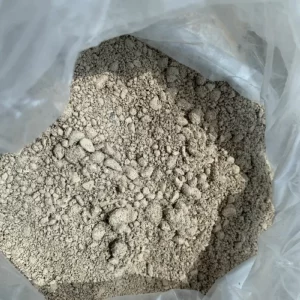How does refractory plastic castable concrete contribute to energy efficiency in industrial applications?
Refractory plastic castable concrete contributes to energy efficiency in industrial applications primarily through its insulating properties and ability to withstand high temperatures. Here’s how:
- Thermal Insulation: Refractory castable concrete contains insulating materials that provide thermal insulation, reducing heat transfer between the hot surface and the surrounding environment. By minimizing heat loss, the castable concrete helps maintain higher temperatures within industrial equipment such as furnaces, kilns, and reactors. This insulation reduces the amount of energy required to heat or maintain operating temperatures, resulting in energy savings and improved efficiency.
- Heat Retention: Refractory castable concrete has the ability to retain heat, even after the heat source is turned off. This heat retention property helps stabilize temperatures within industrial equipment, reducing temperature fluctuations and the need for frequent reheating. As a result, energy consumption is optimized, and the overall efficiency of industrial processes is improved.
- Reduced Heat Loss: Refractory castable concrete forms a barrier that reduces heat loss from industrial equipment to the surrounding environment. This is particularly beneficial in applications where hot surfaces are in close proximity to personnel or sensitive equipment. By containing heat within the equipment, the castable concrete minimizes wasted energy and creates a safer working environment.
- Improved Combustion Efficiency: In applications involving combustion processes, such as boilers or incinerators, refractory castable concrete linings help optimize combustion efficiency. By providing insulation and heat containment, refractory plastic castable concrete the castable concrete ensures that combustion temperatures are maintained at optimal levels, promoting complete combustion and reducing fuel consumption. This leads to energy savings and lower emissions of pollutants.
- Thermal Shock Resistance: Refractory castable concrete is designed to withstand thermal shock, which occurs when materials are subjected to rapid temperature changes. This resistance to thermal shock ensures the longevity of industrial equipment by preventing damage to refractory linings, reducing the need for frequent repairs or replacements. As a result, energy efficiency is maintained over the long term, as equipment remains operational and performs optimally.
- Customizable Insulation Thickness: Refractory castable concrete can be tailored to specific insulation thickness requirements, allowing for precise control of thermal performance. Thicker insulation layers provide higher levels of insulation, reducing heat loss and improving energy efficiency in industrial applications. By customizing insulation thickness based on the specific needs of each application, energy consumption can be minimized while maintaining optimal operating conditions.
Overall, refractory plastic castable concrete contributes to energy efficiency in industrial applications by providing thermal insulation, heat retention, reduced heat loss, improved combustion efficiency, thermal shock resistance, and customizable insulation thickness. By optimizing thermal performance and minimizing energy consumption, refractory castable concrete helps industrial facilities operate more efficiently, reduce operating costs, and achieve sustainability goals.


Comments are closed.